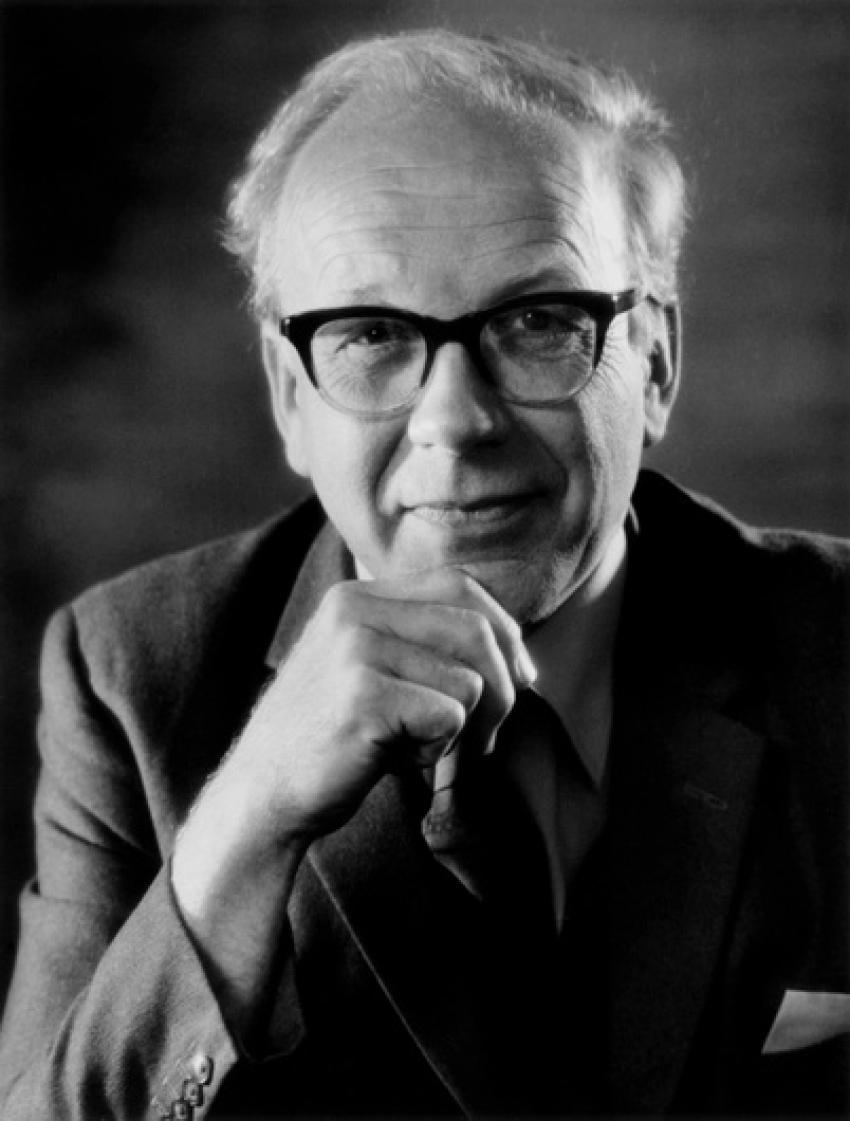The Royal Astronomical Society (RAS) is saddened to learn of the passing of pioneering radio astronomer Sir Francis Graham-Smith, who has died aged 102.
Sir Francis was president of the RAS from 1975 to 1977 and served as the 13th Astronomer Royal from 1982 to 1990.
A towering figure in British astronomy, he was elected as a Fellow of the Royal Society in 1970, headed up the Royal Greenwich Observatory from 1975 to 1981 and became the second director of Jodrell Bank Observatory, taking over from Sir Bernard Lovell when he retired in 1981.
It was during his time at Greenwich that Sir Francis made a major contribution to optical astronomy by establishing the Isaac Newton group of UK telescopes on La Palma in the Canary Islands. He received a knighthood in 1986.
Sir Francis began studying natural sciences at Cambridge in 1941 but was forced to interrupt his studies to work on the development of radar during the Second World War.
He graduated in 1946 and stayed on at Cambridge to work alongside Sir Martin Ryle, his predecessor as Astronomer Royal. The two would go on to play a key role in helping to shape radio astronomy in its infancy.
However, when Professor Dame Jocelyn Bell Burnell made the first ever detection of a pulsar in 1967, Sir Francis switched his attention to studying these phenomena using the Lovell Telescope at Jodrell Bank. This remained the focus for much of the rest of his career.
He officially retired in 1988 but continued to work into his 90s as an active member of Jodrell Bank’s pulsar research group. Sir Francis also wrote an article on fast radio bursts in the April 2025 edition of A&G, the RAS's bimonthly house magazine.
Professor Mike Lockwood, President of the RAS, said: "Sir Francis was a truly great servant of astronomy and of the UK.
"His work on radar in WW2 led him into a pioneering career in radio astronomy for which he laid much of the foundations needed to build on Dame Jocelyn Bell Burnell's discovery of pulsars.
"As Astronomer Royal and director of both the Royal Greenwich Observatory and Jodrell Bank, he was a passionate and effective advocate for science and remained an active scientist well beyond the age of 90."
The RAS offers its sincere condolences to Sir Francis's family, friends, and all those who had the privilege to know and work with him.


